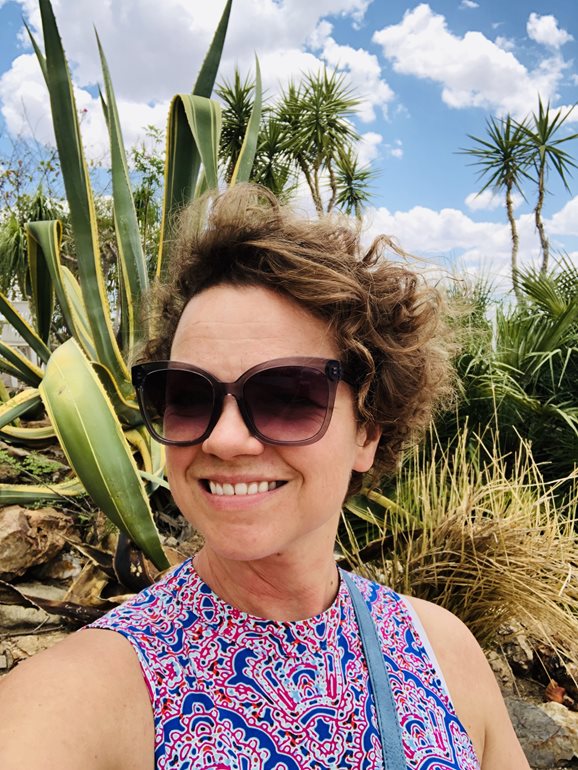
Mariah Crystal was six months into a nine-month Fulbright program, conducting research in Namibia, when she received an email from program administrators in mid-March: Get on the next flight home, because of the coronavirus pandemic.
Now, the University of Washington Bothell graduate (Master of Arts in Policy Studies ’10) is back at the University of Kansas where she is finishing a doctorate in Women, Gender & Sexuality Studies.
“It’s too bad,” Crystal said of the trip cut short, “but it obviously pales in comparison to the horrible, human tragedy of this virus.”
Although her Fulbright ended abruptly, Crystal looks for the silver linings.
Finding silver linings
As a result of wanting to take advantage of every minute in Namibia, Crystal had already completed the bulk of her planned oral history interviews and archival research when she was told to return to the Unites States. It also helped to have contacts from her 2012-14 Peace Corps service in Namibia, teaching English, she said.
“I feel really fortunate that I do have enough information to write my dissertation,” said Crystal who is now transcribing her interviews and coding all the data she collected.
Another silver lining: She has a three-month head start on writing her thesis and is on track to complete KU’s five-year Ph.D. program next year.
Crystal said she is contributing to history in allyship with scholars in Namibia. It’s a beautiful country, lush and green in the north with a desert in the south, she said. It is also a country divided by economic disparities between the capital, Windhoek, where she was based, and the settlements that are spread across the sparsely populated country.
“I will return to Namibia at some point in my life because it’s my scholarly home and a second home to me personally,” Crystal said.
Women leading the way
Crystal’s research and writing focus on the role of women in the movement that led to Namibia’s independence from South Africa in 1990.
Located on the Atlantic Ocean, Namibia was once a German colony known as South West Africa. South Africa took over the territory during World War I, and Namibians conducted a long campaign against the apartheid regime.
“One thing that’s become abundantly clear is the central role of women,” Crystal said. “It wasn’t even a role. It was a pivotal, underlying, foundational element of the struggle — everything from women hiding combatants, providing intelligence for combatants, providing medical care for combatants and actually fighting on the front lines.”
What Crystal heard from the women she interviewed — or their families, if they had passed away — “I was also there.”
Beginning at UW Bothell
Crystal said her interests in international development and academic scholarship were inspired by mentors at UW Bothell, especially Leslie Ashbaugh. Ashbaugh was assistant vice chancellor for academic achievement and a senior lecturer in the School of Interdisciplinary Arts & Sciences who died of cancer in 2016. Other IAS mentors were Professor Ron Krabill and Bruce Kochis, a senior lecturer who retired last year. She worked with them on the Washington, D.C., Human Rights Seminar.
After graduating, Crystal also worked at UW Bothell as an international adviser for admissions. She remains grateful for all her experiences at the University.
“That’s what drives me to pay it forward,” she said. “I’ve been super lucky. I had so many professors at UW Bothell who cared deeply about what they were doing and mentored us — taught us what leadership is, taught us what social justice is.
“You can’t be like Leslie Ashbaugh — she’s too special — but I aspire to be that way,” Crystal said.



